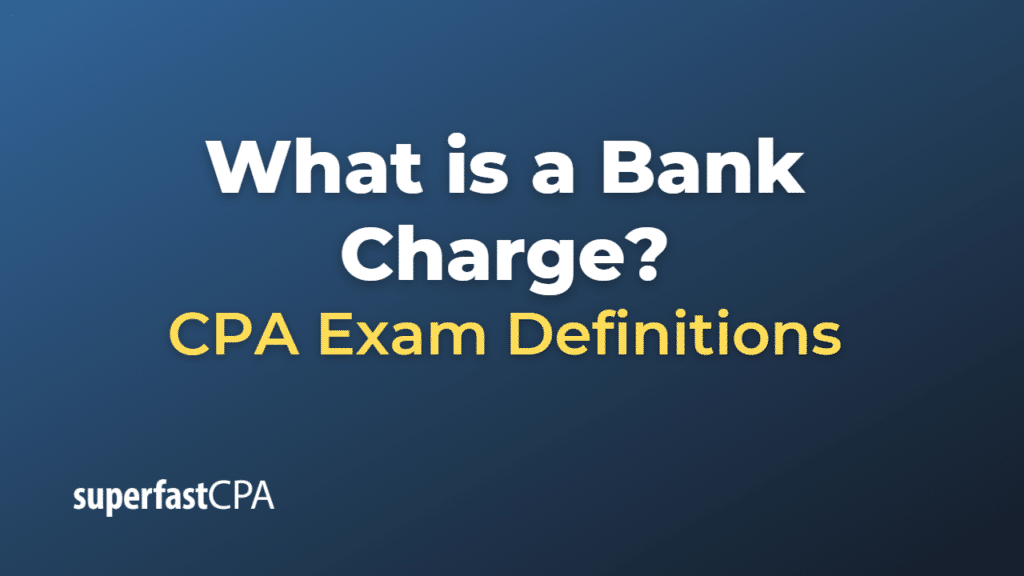Bank Charge
A bank charge is a fee that a bank imposes on its customers for various services, transactions, or account maintenance. Bank charges can include, but are not limited to:
- Monthly maintenance fees: Fees charged to maintain your account, often waived if certain conditions are met, such as maintaining a minimum balance or having direct deposit.
- Overdraft fees: Fees charged when a customer’s account balance goes below zero due to transactions exceeding the available funds.
- Insufficient funds fees: Fees charged when a check or electronic payment is presented for payment, but the account does not have enough funds to cover the transaction.
- ATM fees: Fees for using an ATM outside of your bank’s network or for certain transactions like balance inquiries or withdrawals.
- Wire transfer fees: Fees for sending or receiving money through a wire transfer, which is an electronic transfer of funds between banks.
- Foreign transaction fees: Fees for using your debit or credit card for purchases or withdrawals in a foreign currency or in a foreign country.
- Account closing fees: Some banks may charge a fee for closing an account within a certain period after opening it.
These charges vary by bank, account type, and sometimes by the specific service used. It is essential for customers to understand the charges associated with their accounts and to shop around for the best banking options to minimize fees.
Example of a Bank Charge
Here’s an example of a common bank charge:
Overdraft Fee: An overdraft occurs when a customer’s account balance falls below zero, usually due to the withdrawal of funds, check payments, or other transactions exceeding the available balance. When this happens, the bank may charge an overdraft fee.
For example, let’s say you have $100 in your checking account. If you make a purchase for $120 with your debit card, you will have overdrawn your account by $20. In this case, the bank may allow the transaction to go through, but they will charge you an overdraft fee as a result. This fee can vary depending on the bank’s policy, but it might be around $35. So, your new account balance would be -$55, which includes the $20 overdraft and the $35 overdraft fee.
It’s important to note that banks have different policies regarding overdrafts and associated fees, so it’s always a good idea to be familiar with your bank’s specific terms and conditions. Some banks offer overdraft protection services, which can help you avoid overdraft fees by linking your checking account to another account or line of credit.













